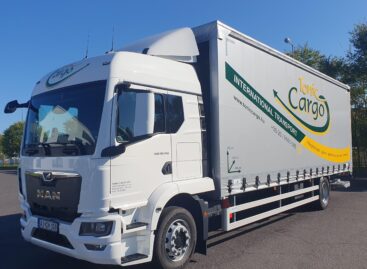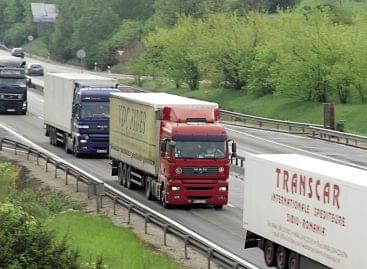Roland Berger: we need to rethink urban freight transport
Urban logistics, i.e. the transportation of goods within the city and delivery to customers, creates many challenges. As a result of the pandemic, the number of online orders has increased, and logistics providers have been forced to switch to a segmented approach that meets the needs of consumers. The biggest challenge is the implementation of a sustainable and efficient transport system in the urban environment, however, according to Roland Berger experts, it is necessary to move away from the current fragmented transport process.

Consumers demand fast and cost-effective delivery
Consumers increasingly expect the ordered products to be delivered as quickly and affordably as possible: around 56 percent of online shoppers between the ages of 18 and 34 demand that they receive the products the same day. Global e-commerce sales have boomed, and the market is expected to continue to grow at around 9 percent per year in the coming years. In order to meet these demands, logistics providers have “atomized” deliveries (i.e. orders are fulfilled one by one), which, in addition to increasing complexity and cost, also leads to overloading of urban infrastructure and increased emissions.
“E-commerce currently accounts for around 20 percent of global retail sales and shows no signs of slowing down. Moreover, the challenges are not limited to B2C markets, in B2B e-commerce, business customers expect the same speed and flexibility that they receive in their private transactions. This poses a serious challenge to the areas involved in the sector, such as logistics and infrastructure. According to Roland Berger, a long-term solution will require sustained collaboration between stakeholders, which can ease the pressure on city infrastructure while ensuring that customer needs are met in a timely and sustainable manner.”
– said Frigyes Schannen, Hungarian partner of Roland Berger.
Related news
Freight Transport and Luxury Business Travel, Tailored to Your Needs
Tonic Cargo Ltd. has been offering tailored logistics and transportation…
Read more >CÖF-CÖKA: multinational companies should include small villages in their delivery portfolio
The Civil Solidarity Forum (CÖF) – Civil Solidarity Public Benefit…
Read more >According to the interests of logistics service providers, the EKR amendment can significantly reduce truck traffic
The fact that rail transportation of semi-trailers has been subsidized…
Read more >Related news
Recognition of Consumer Protection Excellence: Honoring the Best of 2024
This year’s outstanding consumer protection officers and special award recipients…
Read more >The Joy of Giving! – SPAR stores collect non-perishable food for people in need
The Hungarian Maltese Charity Service and SPAR Hungary have launched…
Read more >KSH: industrial production decreased by 0.2 percent in October
In October, the volume of industrial production fell by 0.2…
Read more >








